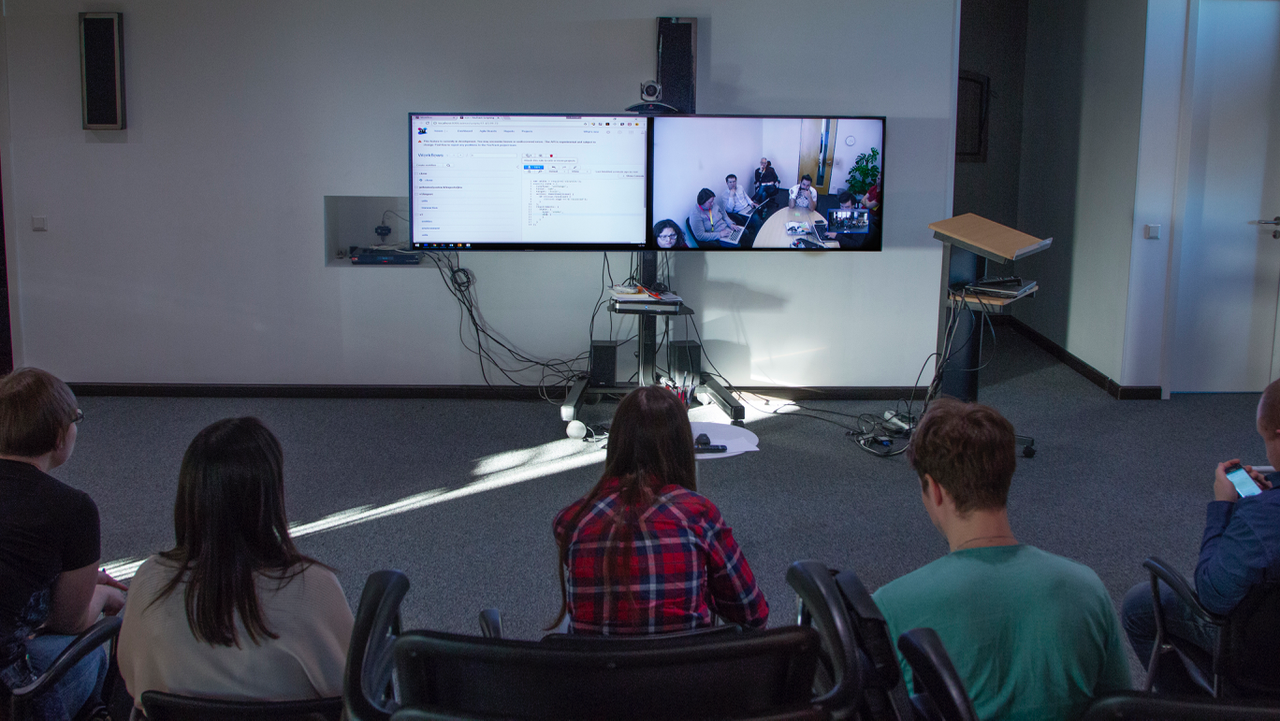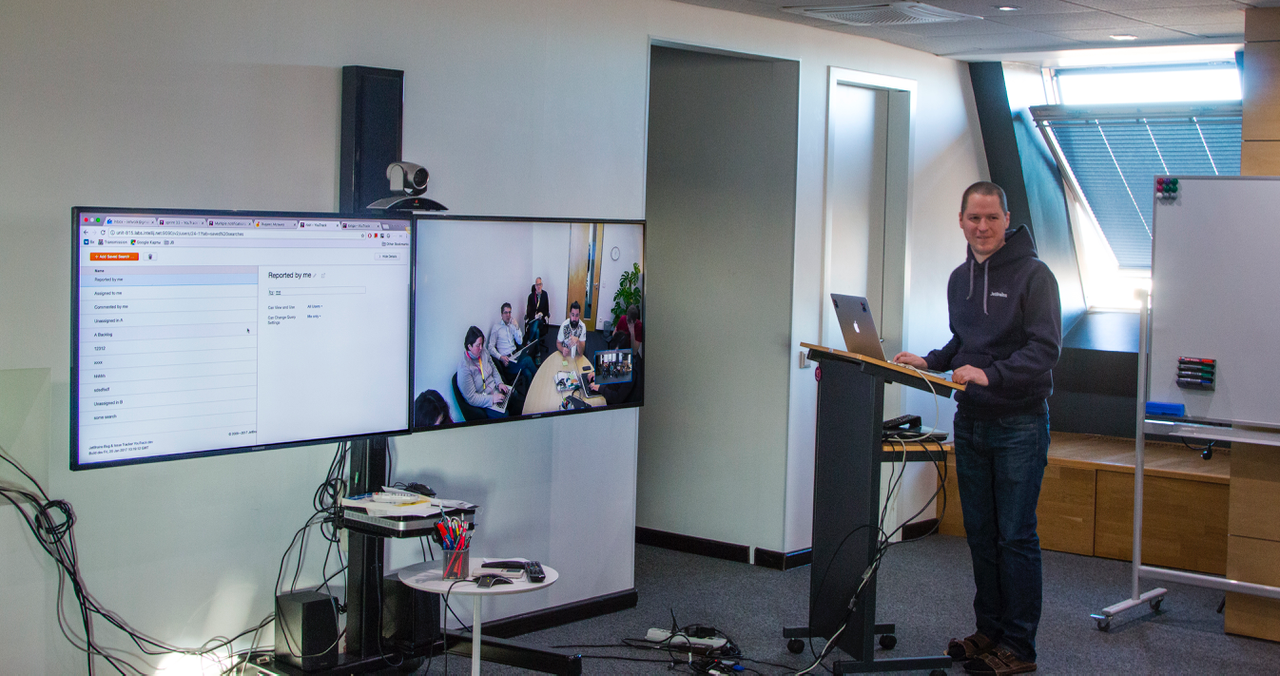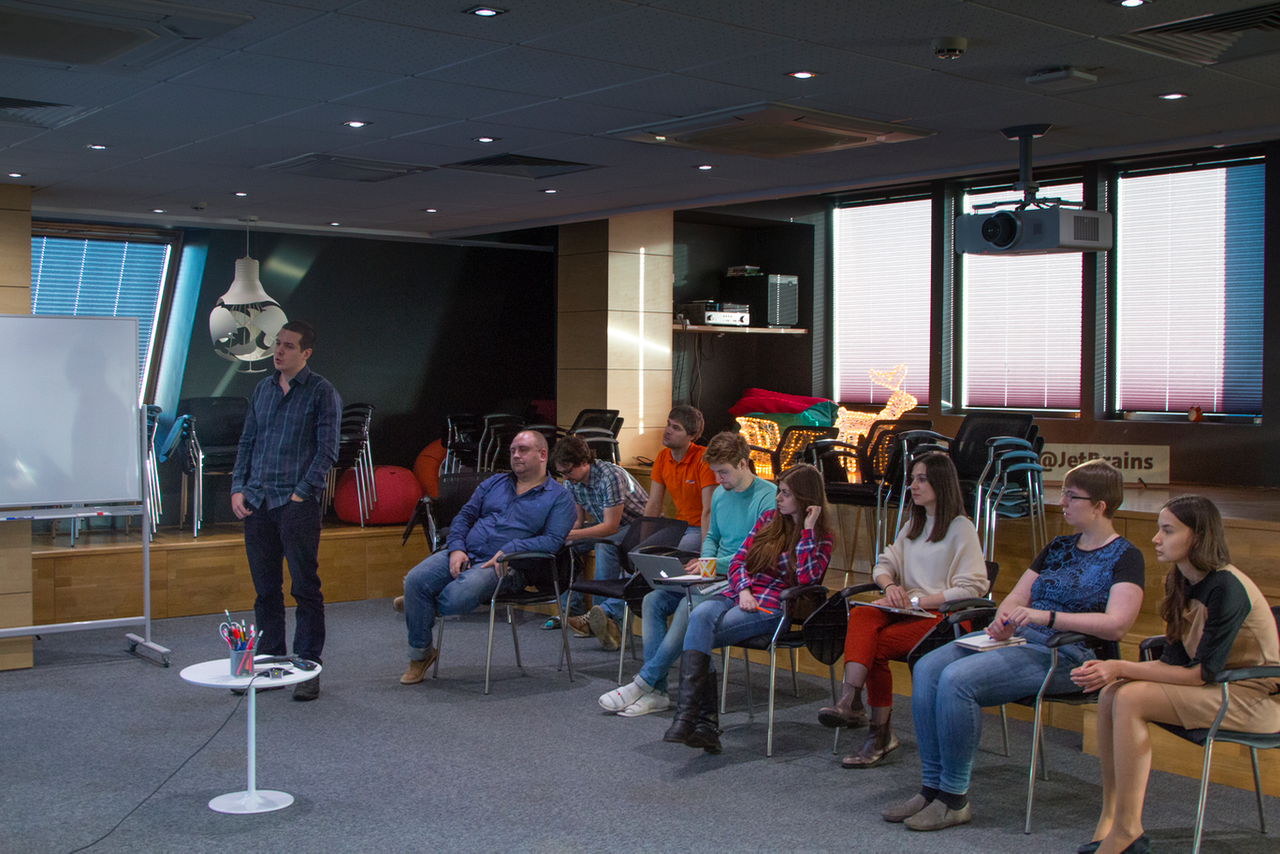YouTrack
Powerful project management for all your teams
Our Sprint Demo Session
In this, our seventh episode, I’ll give you a backstage pass to our sprint demo. Previous posts in our How We Scrum series include an Introduction, Our Scrum Roles, Our Backlog, Our Approach to Estimation, Our Sprint Planning, and The Sprint.
At the end of every sprint, we have a sprint demo session. We normally schedule the demo on the last Friday of the sprint. We book one hour for the demo, however, it takes about 40 minutes on average. All team members are required to participate. As always, we connect the St. Petersburg and Munich offices by video conference and start our online show.
The sprint demo is one of the most exciting Scrum activities for us, as every presenter feels like a rockstar on stage, whose goal is to make an interesting and entertaining presentation.

We announce the set of user stories we are going to demo in advance. The demo is performed by the author of a user story, which is normally a developer, or sometimes a Quality Assurance Engineer, who tested this functionality. The author demonstrates various usage scenarios on a large shared screen and explains how the new functionality works. If the audience wants to see some missed use cases, they ask for it during the demo. Otherwise, all the questions are held to the end of the demo.

The presenter answers the questions and Scrum Master records any missing use cases, bugs, and small improvements that come to mind during the demo. Most of the comments and feedback come from the Product Owner, who basically determines whether a new feature meets the acceptance criteria.
When the discussion is over, we list the tweaks we need to finish the feature, and try to fix them in the next sprint. If we realize that it requires too many changes to implement immediately, we can postpone the user story. At the end, the presenter receives a round of applause and joins the audience with all the honors.
Then the next presenter introduces his or her user story. Normally, we do about four demos. Uncompleted user stories demos are moved to the next sprint. The public demo is a very motivating activity. We try to involve all the developers, so they each present a demo in turn. It takes time to prepare and test a user story for several use cases and prepare the test data, but each presenter enjoys the challenge. But that’s not all. Demos are very important for the whole team, as they keep everyone on the same page and give everyone a chance to share feedback immediately.
The last episode Our Sprint Retrospective is coming on Thursday. Watch for updates!






